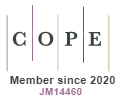Paulo Freire and early childhood education in seven categories that complement each other
DOI:
https://doi.org/10.5585/42.2022.23499Keywords:
childhood, child education, Paulo Freire, freirian epistemology, emancipating educationAbstract
Known and recognized as one of the most relevant productions of the 20th century for the pedagogical field, Paulo Freire's theoretical-methodological legacy was discussed until the end of the 1990s, primarily within the scope of education for young people and adults. However, with the rediscovery and expansion of his ideas, since the beginning of the first decade of the 21st century, the work of the eminent Brazilian educator and thinker has been questioned in different areas of knowledge and incorporated as a theoretical and practical reference by an infinity of social movements. critical-humanists. During this same period, childhood has been one of the most outstanding modalities in pedagogical renewal, finding in Freire's subsidies important conceptual and practical contributions to daily educational activities, in this very fundamental stage of education. With the purpose of contributing to this debate, this reflection chose seven freirian categories that, among others, help to understand both the ontological process and the learning process in the early years, whether in the world of school or outside the school environment. Hope/utopia, loveliness, dialogue, reading the world, inconclusion, naivety and curiosity are some of the central conceptual contributions that, discussed here from the Freirian legacy, contribute to the foundations of a radically emancipatory praxis since childhood.
Downloads
References
ANDREOLA, Balduíno Antonio. Prefácio. In: SILVA, Marta Regina Paulo da; MAFRA, Jason Ferreira. Paulo Freire e a educação das crianças. São Paulo: BT Acadêmico, 2020, pp. 17-27.
FREIRE, Paulo. A importância do ato de ler: em três artigos que se completam. 6. ed. São Paulo: Autores Associados: Cortez, 1994.
FREIRE, Paulo. Cartas à Guiné-Bissau: registros de uma experiência em processo. 5. ed. São Paulo: Paz e Terra, 2011.
FREIRE, Paulo. Educação como prática da liberdade. 18. ed. Rio de Janeiro: Paz e Terra, 1987.
FREIRE, Paulo. Extensão ou comunicação? 4. ed. Rio de Janeiro: Paz e Terra, 1979.
FREIRE, Paulo. Pedagogia da autonomia: saberes e práticas necessários a educação. ed. 62. Rio de Janeiro / São Paulo: Paz e Terra, 2019. [1996]
FREIRE, Paulo. Pedagogia da esperança: um reencontro com a Pedagogia do oprimido. 28. ed. São Paulo / Rio de Janeiro: Paz e Terra, 2021.
FREIRE, Paulo. Pedagogia do oprimido (o manuscrito). 1. ed. São Paulo: Editora e Livraria Instituto Paulo Freire; Universidade Nove de Julho (UNINOVE); Big Time Editora/BT Acadêmica, 2018.
GADOTTI, Moacir; FREIRE, Paulo; GUIMARÃES, Sérgio. Pedagogia: diálogo e conflito. 9. ed. São Paulo: Cortez, 2015.
MAFRA, Jason Ferreira. Paulo Freire, um menino conectivo: conhecimento, valores e práxis do educador. São Paulo: BT Acadêmica / Brasília: Liber Livro, 2016.
SILVA, José Walter Silva e. Cultura… culturas: tensões pentecostais no ensino da religiosidade afro-brasileira. 2018. Dissertação (Mestrado em Educação) – Universidade Nove de Julho, São Paulo, 2018.
SILVA, Marta Regina Paulo da; MAFRA, Jason Ferreira. Paulo Freire e a educação das crianças. São Paulo: BT Acadêmico, 2020.
SIMÕES, Sérgio Lourenço. A pedagogia do neologismo: a linguagem de Paulo Freire e a educação libertadora. 2013. Tese (Doutoramento) – Universidade Nove de Julho, São Paulo, 2013.
Downloads
Published
How to Cite
Issue
Section
License
Copyright (c) 2022 Dialogia

This work is licensed under a Creative Commons Attribution-NonCommercial-ShareAlike 4.0 International License.
- Abstract 582
- PDF (Português (Brasil)) 329






